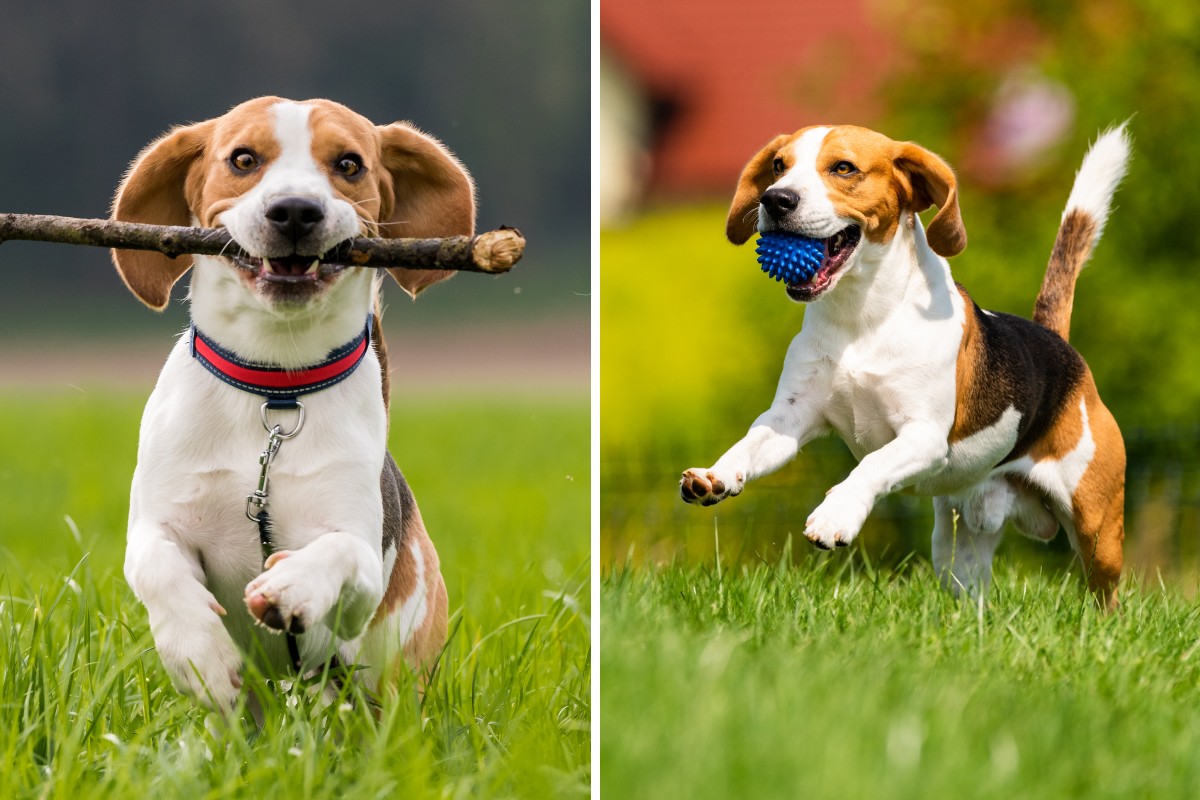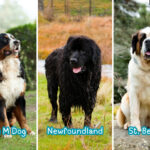 30 Oct
30 OctIs a Beagle a Good First Dog?
All pet parents have experienced the joy of getting their very first dog! It’s a decision that can bring boundless happiness, companionship, and just a sprinkle of delightful chaos to your life. I’ve been an ardent dog parent for years, and the journey of understanding, bonding, and growing with these furry pals has been nothing short of rewarding.
Now, onto the heart of the matter – the Beagle. Known for its adorable floppy ears, keen sense of smell, and insatiable curiosity, the Beagle often tops the list when potential dog owners are scouting for a friendly breed. But the pressing question remains: is a Beagle the right choice for someone who’s just stepping into the world of dog parenting?
Quick Answer: Yes, a Beagle can be a good first dog for many individuals. They are friendly, sociable, and adaptable, making them suitable for families, singles, and seniors alike. Their manageable size and playful nature appeal to novice dog owners.
However, potential Beagle parents should be prepared for their high energy levels, occasional stubbornness during training, and propensity to follow their noses, which can lead to wandering. Through this article, we’ll walk together through the temperament, care needs, and challenges of owning a Beagle, to help you make an informed choice.

Temperament and Personality of Beagles
The Beagle, with its soulful eyes and wagging tail, is more than just a delightful presence; it embodies a unique blend of traits that many dog lovers find irresistible. Let’s explore the temperament and personality of Beagles in detail:
1. Friendly and Sociable Nature
Beagles are inherently amiable dogs. Their origins as pack animals make them exceptionally social creatures. Whether it’s a family gathering, a day out in the park, or a regular evening at home, you’ll find your Beagle eager to mingle, making them excellent companions for those who value a pet that thrives on interaction.
2. High Energy Levels and Playfulness
Do not be fooled by their medium size; Beagles are bursting with energy! This breed loves to play, whether it’s fetch, tug-of-war, or just running around in open spaces. Their playful demeanor isn’t just limited to their puppy years; many Beagles maintain this zest for life well into their adult years. This means they’ll need regular exercise to keep them happy and healthy, so a daily walk or play session is a must.
3. Relationship with Kids and Other Animals
Beagles are known to form strong bonds with children. Their gentle yet playful nature resonates well with kids, making them an ideal family pet. As for other animals, thanks to their pack mentality, Beagles generally get along well with other dogs.
However, given their hunting ancestry, they might sometimes be inclined to chase smaller animals. With proper socialization from a young age, they can coexist harmoniously with other household pets.
Maintenance and Care Needs for Beagles
Beagles, with their endearing expressions and zest for life, undoubtedly make for heartwarming companions. However, as with any dog breed, they come with their set of care requirements. Let’s explore the essential maintenance and care needs for Beagles:
1. Grooming Requirements
Contrary to what some might believe due to their short coat, Beagles do shed. They typically have two shedding seasons per year—spring and fall. During these times, regular brushing, at least a couple of times a week, can help manage and reduce the amount of hair that finds its way onto your furniture and clothing.
Beagles don’t need frequent baths. A monthly bath should suffice unless they get into something particularly messy. Their natural oils help keep their coat healthy, so over-bathing can strip these oils and lead to skin issues. Don’t forget to trim their nails regularly, clean their ears to prevent infections, and brush their teeth for overall dental health.
2. Exercise Needs
Beagles are energetic dogs. A simple stroll around the block won’t be enough for them. They benefit from at least an hour of exercise daily. This could be in the form of brisk walks, play sessions in a fenced yard, or mentally stimulating games.
Given their keen sense of smell, they also enjoy activities that engage their noses, such as scent-tracking games. It’s essential to have a securely fenced area if you let them off-leash, as Beagles might follow their nose and wander off.
3. Diet Considerations
Beagles have hearty appetites, but they can be prone to obesity if overfed. It’s crucial to feed them a balanced diet tailored to their age, weight, and activity level.
Quality commercial dog food that lists meat as the primary ingredient is generally a good choice. However, for those inclined, home-cooked meals or a raw diet can be considered under the guidance of a veterinarian.
Treats are often a Beagle’s best friend but remember to give them in moderation and ensure they don’t exceed 10% of the dog’s daily caloric intake.

Advantages of Choosing a Beagle as a First Dog
The decision to welcome a Beagle into your home, especially as a first-time dog owner, comes with a host of benefits. Here are some notable advantages of choosing a Beagle as your introductory foray into the world of canine companionship:
1. Adaptable to Various Living Situations
Beagles are versatile when it comes to their living environment. Whether you reside in a spacious suburban home with a backyard or a city apartment, a Beagle can comfortably adjust, provided they receive their necessary exercise and playtime.
2. Great Companions for All
Their sociable and friendly disposition makes Beagles excellent companions for a diverse range of individuals. Families with children will find them playful and gentle with kids, while singles and seniors will appreciate their loyal and comforting presence. Their ability to bond with humans of all ages truly sets them apart.
3. Relatively Manageable Size
Weighing in at 20 to 25 pounds on average for adults, Beagles present a size that’s neither too small nor too large. This makes them easier to handle, especially for first-time dog owners. Their compact size also means they’re more manageable during travels, vet visits, or simple cuddle sessions on the couch.
Challenges to Consider with Beagles
While Beagles bring a multitude of joys to their owners, they’re not without their quirks. As with any breed, understanding potential challenges is key to building a harmonious relationship. Here are some challenges to be aware of when considering a Beagle:
1. Propensity to Bark or Howl
Beagles are vocal by nature. Whether it’s a bark to alert you of someone at the door or a howl when they’re feeling particularly expressive, their vocalizations can sometimes be a point of contention, especially in noise-sensitive environments or communities.
2. Tendency to Follow Their Nose
Thanks to their history as scent hounds, Beagles have an exceptional sense of smell. While this makes for fun scent games, it also means they can get distracted by intriguing scents. This trait can sometimes lead them astray, making a secure fence or leash essential during outdoor excursions.
3. Stubbornness During Training
Though intelligent and eager to please, Beagles can exhibit a streak of stubbornness. This can pose challenges during training sessions. Consistency, patience, and positive reinforcement techniques are crucial to guiding them through the learning process effectively.




